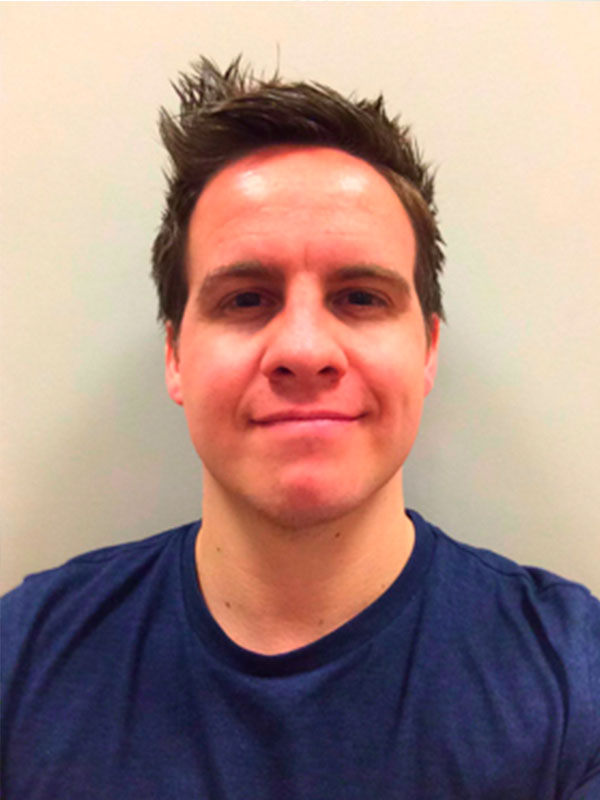The development of a digital literacy self-evaluation tool with allied health professionals
At the beginning of my fellowship...
At the commencement of the fellowship, I had originally planned to develop a digital self-evaluation tool for my Trust in order to allow each member of staff (of which there are 18,050) to assess their current level of digital literacy.
This project was undertaken to support the educational recommendations in the Topol Review, to support a digitally enabled health system (E1-14), and particularly the enhancement of digital literacy within the NHS workforce.
In this video Christopher Tack discusses his experience from his time as a Topol Fellow which supported him in the development of a digital literacy self-evaluation tool for allied health professionals.
During my fellowship...
Primary project
My primary project for the fellowship evolved from the local development of a digital literacy self-evaluation tool for Guys’ and St Thomas’ NHS Foundation Trust, into the development of a digital competency framework for allied health professionals to be accessed and used by staff across the UK.
There are 223,991 registered AHPs (across 14 professions) within the UK. This project was completed on behalf of NHS England and Health Education England (HEE) and will be linked with work across the other home Nations (in collaboration with NHS Education for Scotland and colleagues in Wales and Northern Ireland). The framework (now completed) will be built into an existing platform developed by HEE for all AHPs to log in, provide their profession and Agenda for Change banding, and be evaluated according to the expectations for their profession/ role. The framework consists of 124 competencies, across 10 domains.
Digital leadership in response to COVID-19
During the unfortunate hiatus in the Fellowship due to the COVID-19 pandemic, I was redeployed to the Therapies directorate at GSTT in my capacity as digital lead for Allied Health Professionals. My role was to co-lead the transformation of services across outpatient services in physiotherapy (and adjacent clinical specialities such as Speech and Language Therapy, Occupational Therapy) with the clinical leadership teams. This involved:
- The development of hybrid remote and face-to-face services for individuals and groups
- The institution of a remote monitoring and exercise adherence system
- The development of an automated system of outcome measurement to aid longitudinal population data analytics
- Planning of the development of an automated patient triaging system to aid stratification to appropriate clinical pathways
- The development of written guidance for the use of remote consultations for outpatient appointments and for the use of social media and instant messaging for clinicians.
- Development of resources for staff (e.g. webinars for staff to facilitate engagement and use of remote consultations, video resources to supplement care pathways).
External digital leadership
Alongside the above work, I have also used the knowledge and skills learned to facilitate engagement with the digital agenda in healthcare through:
- Becoming co-chair of the NHS England pan-London AHP informatics and digital network. This is a network focused on digital transformation of healthcare in London and is made up of digital leads for AHPs across Trusts in the capital. The group is focused on enhancing education and development for AHPs in London, mapping the digital maturity of services, staff and patients in London and engaging with the use of analytics for population health in London.
- I have presented on digital education and future scoping for the profession at the National conference for Physiotherapy.
- I have continued to engage with the planning of and procurement of Epic as the system wide EHR for Guys’ and St Thomas’ NHS Foundation Trust.
- I have worked as a guest lecturer for Kings College London providing lectures and workshops for their undergraduate and post graduate students on digital interventions within healthcare.
Lessons learned:
- Digital transformation of healthcare services is first and foremost a matter of cultural change management. Teams before tech.
- Digital literacy consists of confidence, motivation and experience. Digital competence (knowledge and skills required) is related to experience and is specific to the profession and role of the individual. This should be reflected in tools to evaluate digital literacy of healthcare staff.
- Digital projects need to have a combination of both structured ‘Waterfall/ Prince II’ type project management AND Agile project management methods. Neither alone will cut it within the NHS bureaucracy. Agile will not be immediately trusted; Waterfall is not quick or flexible enough to react to the changing digital environment.
- Pathways, tools and interventions all should be co-designed with our service users (patients) – and not just one individual. Multiple perspectives and viewpoints only enhance our products (outputs).
Links, writing and work that I completed while I was a Topol Fellow.
A blog outlining the summary of my Fellowship project was published on the Topol Fellowship website alongside my profile: https://topol.hee.nhs.uk/digital-fellowships/updates/am-i-digitally-literate-enough-a-guide-for-the-average-uk-healthcare-worker/
My Fellowship journey was diarised as a blog here: https://digitalahp.wordpress.com/
Blog posts
Defining AHP digital competencies | Baseline & A Call to Digital Arms
Recruitment: Digital AHP Needs You!
Understanding “Data Management” and Homework
Let’s Push Things Forward | Reframing “Digital First”
Publications
- The digital competency framework for allied health professions will be published by HEE in the first quarter of 2021 in line with the roll out of their self-assessment platform (link TBC).
- Details of the digital transformation of the physiotherapy service in response to the COVID-19 pandemic, were published in the Physiotherapy journal: “Physio anywhere”: digitally-enhanced outpatient care as a legacy of coronavirus 2020
- The baseline survey data of digital competence in physiotherapists versus other AHPs was published in the Open Physiotherapy Journal: Digital confidence, experience and motivation in physiotherapists: A UK-wide survey
- The results of a staff acceptability and experience survey for physiotherapists undertaking remote consultation in response to the COVID-19 pandemic will be published imminently in the British Journal of Healthcare Management: Staff Experience of rapid implementation of tele- medicine: informing future service re-design in a changed healthcare system. (Link TBC)

